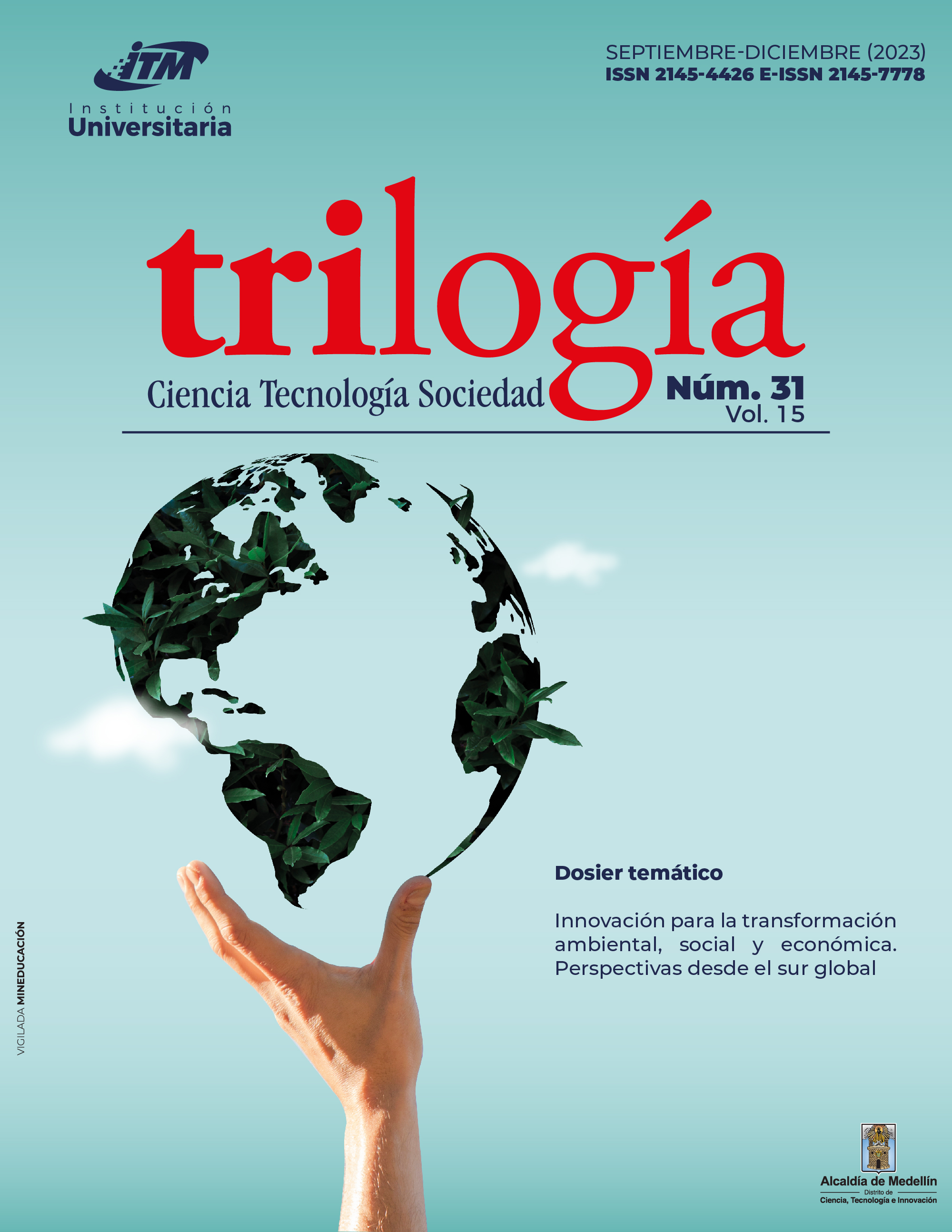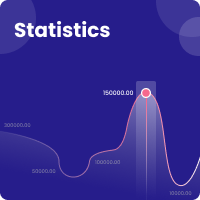The Challenge of Finding the Challenge: El Bages’ Shared Agenda, a Transformative Innovation Experience
Abstract
Shared agendas are defined within the framework of the smart specialization strategy by the Government of Catalonia (Spain) and are part of its transformative innovation policy. These agendas, which adopt the multi-level perspective, are spaces where participants can experiment with innovation policies. They are territorial ecosystems comprising diverse actors in a participatory governance model. This article discusses the process of articulating the first stage in the development of a shared agenda (i.e., defining the challenge and co-creating a shared vision of the future) for El Bages (a region in Catalonia, Spain). This exploration encompassed the process of identifying the challenge based on defining factors (territorial potential, local needs, and global issues) and the procedures followed to jointly develop a shared vision of the future. These procedures were based on a systemic map of the challenge and a specific theory of change for the agenda. Finally, this study presents the main findings of this process of implementing a shared agenda. In particular, public policy should protect shared agendas and challenges should be addressed adopting a regional approach, two points that can be considered for the promotion of transformative public policy in other territories.
References
BBVA. (2018). Anuari Econòmic Comarcal 2018. https://www.bbvaresearch.com/wp-content/uploads/2018/11/Anuari_2018_CAT.pdf
Bergek, A., Hellsmark, H., y Karltorp, K. (2023). Directionality challenges for transformative innovation policy: lessons from implementing climate goals in the process industry. Industry and Innovation, 30(8), 1110-1139. https://doi.org/10.1080/13662716.2022.2163882
Boni, A., Velasco, D., Acebillo-Baqué, M., Sort-García, M. L., Gironès-García, X., Molas-Gallart, J., y Fernández-Sirera, T. (2023). Evaluación formativa y políticas regionales de innovación transformadoras. El caso de la Agenda Compartida del Bages. Ekonomiaz, 104(2), 100-125. https://www.euskadi.eus/web01-a2reveko/en/k86aEkonomiazWar/ekonomiaz/abrirArticulo?idpubl=101®istro=8
Diercks, G., Larsen, H., y Steward, F. (2019). Transformative innovation policy: Addressing variety in an emerging policy paradigm. Research Policy, 48(4), 880-894. https://doi.org/10.1016/j.respol.2018.10.028
Diputació de Barcelona. (s.f.). HERMES. Informació Estadística Local. https://www.diba.cat/hg2/
Diputació de Barcelona, y Cambra Oficial de Comerç, Indústria, Serveis i Navegació de Barcelona. (2018). Informe Territorial. Demarcació de Barcelona. https://www.cambrabcn.org/documents/20182/51393/INFORME+TERRITORIAL+DEMARCACIO+DE+BARCELONA_2018.pdf/0aa55fe5-c399-4d11-b613-e5005b9c6bde
Fundación Universitaria del Bages, y ReImagined Futures. (2022). Mapa sistémico sobre la cronicidad y la dependencia en Bages. https://reimagined-futures.kumu.io/mapa-sistemico-sobre-la-cronicidad-y-la-dependencia-en-bages?token=t72R5BD4KyuhAw9q
Geels, F. W. (2002). Technological transitions as evolutionary reconfiguration processes: a multi-level perspective and a case-study. Research Policy, 31(8-9), 1257-1274. https://doi.org/10.1016/S0048-7333(02)00062-8
Geels, F. W. (2010). Ontologies, socio-technical transitions (to sustainability), and the multi-level perspective. Research Policy, 39(4), 495-510. https://doi.org/10.1016/j.respol.2010.01.022
Geels, F. W., y Schot, J. (2007). Typology of sociotechnical transition pathways. Research Policy, 36(3), 399-417. https://doi.org/10.1016/j.respol.2007.01.003
Generalitat de Catalunya. (2014). Estratègia de recerca i innovació per a l’especialització intel·ligent de Catalunya. https://fonseuropeus.gencat.cat/ca/ris3cat/2014-2020/estrategia/
Generalitat de Catalunya. (2020). L’articulació d’agendes compartides per a la sostenibilitat i el canvi social. Una contribució des del territori al debat de la UE sobre les transicions cap a la sostenibilitat. En Monitoratge de la RIS3CAT, (8). https://fonseuropeus.gencat.cat/web/.content/ris3cat/documents/monitoratge/08-monitoratge-ris3cat-agendes-compartides.pdf
Generalitat de Catalunya. (2022). Guia per impulsar agendes compartides en el marc de la RIS3CAT 2030. En Monitoratge de la RIS3CAT, (20). https://fonseuropeus.gencat.cat/web/.content/ris3cat/documents/monitoratge/20-guia-agendes-compartides-ris3cat-2030.pdf
Ghosh, B., Kivimaa, P., Ramirez, M., Schot, J., y Torrens, J. (2021). Transformative outcomes: assessing and reorienting experimentation with transformative innovation policy. Science and Public Policy, 48(5), 739-756. https://doi.org/10.1093/scipol/scab045
Haddad, C. R., Nakić, V., Bergek, A., y Hellsmark, H. (2022). Transformative innovation policy: A systematic review. Environmental Innovation and Societal Transitions, 43, 14-40. https://doi.org/10.1016/j.eist.2022.03.002
Hormecheas-Tapia, K. C., Legarda-López, M., Ruiz-Castañeda, W. L., y Villalba-Morales, M. L. (2020). Participación de la sociedad civil en las dinámicas de innovación para el logro de los ODS. Un marco de análisis. Revista Iberoamericana de Estudios de Desarrollo = Iberoamerican Journal of Development Studies, 9(1), 120-145. https://doi.org/10.26754/ojs_ried/ijds.435
Instituto de Estadística de Cataluña. (2023). Indicadores de estructura de la población. Por grupos de edad. https://www.idescat.cat/indicadors/?id=aec&n=15263&lang=es
Instituto Nacional de Estadística. (2022). Indicadores de mortalidad. Resultados Municipales (capitales de provincia y municipios de más de 50.000 habitantes). Esperanza de Vida al Nacimiento por municipio, según sexo. https://www.ine.es/jaxiT3/Tabla.htm?t=30687&L=0
Kuhlmann, S., y Rip, A. (2018). Next-Generation Innovation Policy and Grand Challenges. Science and Public Policy, 45(4), 448-454. https://doi.org/10.1093/scipol/scy011
Loorbach, D., Frantzeskaki, N., y Avelino, F. (2017). Sustainability Transitions Research: Transforming Science and Practice for Societal Change. Annual Review of Environment and Resources, 42, 599-626. https://doi.org/10.1146/annurev-environ-102014-021340
Molas-Gallart, J., Boni, A., Giachi, S., y Schot, J. (2021). A formative approach to the evaluation of Transformative Innovation Policies. Research Evaluation, 30(4), 431-442. https://doi.org/10.1093/reseval/rvab016
Naciones Unidas. (2022). Objetivos de Desarrollo Sostenible. https://www.un.org/sustainabledevelopment/es/objetivos-de-desarrollo-sostenible/
Observatori del Treball i Model Productiu. (2020). Afiliació al règim general de la Seguretat Social, mineria del carbó i RETA. http://observatoritreball.gencat.cat/ca/ambits_tematics/treball/afiliacio_ss/mineria_carbo_i_regim_especial_autonoms/
Ordóñez-Matamoros, G., Centeno, J. P., Andrade-Sastoque, E., y Pinzón-Camargo, M. A. (2021). Transformative Innovation Policy in Emerging Economies: What Does It Entail? En G. Ordóñez-Matamoros, L. A. Orozco, J. H. Sierra-González, I. Bortagaray, y J. García-Estévez (eds.), Policy and Governance of Science, Technology, and Innovation (pp. 105-146). Springer International Publishing. https://doi.org/10.1007/978-3-030-80832-7_6
Paunov, C., y Planes-Satorra, S. (2023). Engaging citizens in innovation policy: why, when and how? OECD Publishing. https://doi.org/10.1787/ba068fa6-en
Radosevic, S., Tsekouras, G., y Wostner, P. (2023). Institutionalising experimentation in innovation policy: challenges and solutions in upscaling. European Commission. https://s3platform.jrc.ec.europa.eu/w/institutionalising-experimentation-in-innovation-policy-challenges-and-solutions-in-upscaling
Rip, A., y Kemp, R. (1998). Technological change. En S. Rayner, y E. L. Malone (eds.), Human Choice and Climate Change. Resources and Technology (Vol. 2, pp. 327-399). Battelle Press.
Schot, J., Boni, A., Ramirez, M., y Steward, F. (2018). Addressing the Sustainable Development Goals through Transformative Innovation Policy. https://tipconsortium.net/publication/addressing-the-sustainable-development-goals-through-transformative-innovation-policy/
Schot, J., y Geels, F. W. (2008). Strategic niche management and sustainable innovation journeys: theory, findings, research agenda, and policy. Technology Analysis & Strategic Management, 20(5), 537-554. https://doi.org/10.1080/09537320802292651
Schot, J., y Steinmueller, W. E. (2018). Three frames for innovation policy: R&D, systems of innovation and transformative change. Research Policy, 47(9), 1554-1567. https://doi.org/10.1016/j.respol.2018.08.011
Smith, A. (2012). Traduciendo sustentabilidades entre nichos ecológicos y regímenes socio-técnicos. En H. Thomas, M. Fressoli, y G. Santos (coords.), Tecnología, Desarrollo y Democracia. Nueve estudios sobre dinámicas socio-técnicas de exclusión/inclusión social (pp. 131-157). Ministerio de Ciencia, Tecnología e Innovación Productiva de la Nación.
Smith, A., Voß, J.-P., y Grin, J. (2010). Innovation studies and sustainability transitions: The allure of the multi-level perspective and its challenges. Research Policy, 39(4), 435-448. https://doi.org/10.1016/j.respol.2010.01.023
Swilling, M. (2020). The Age of Sustainability: Just Transitions in a Complex World. Routledge.
The Omidyar Group. (2017). Systems Practice. https://social-labs.org/wp-content/uploads/2014/12/Systems-Mapping-Omidyar-Workbook-012617.pdf
United Nations. (2015). Transforming our world: The 2030 Agenda for Sustainable Development. https://sdgs.un.org/sites/default/files/publications/21252030%20Agenda%20for%20Sustainable%20Development%20web.pdf
van Es, M., Guijt, I., y Vogel, I. (2015). Theory of Change Thinking in Practice. A Stepwise Approach. Hivos. https://hivos.org/document/hivos-theory-of-change/
Wanzenböck, I., Wesseling, J. H., Frenken, K., Hekkert, M. P., y Weber, K. M. (2020). A framework for mission-oriented innovation policy: Alternative pathways through the problem–solution space. Science and Public Policy, 47(4), 474-489. https://doi.org/10.1093/scipol/scaa027
Weber, K. M., y Rohracher, H. (2012). Legitimizing research, technology and innovation policies for transformative change: Combining insights from innovation systems and multi-level perspective in a comprehensive ‘failures’ framework. Research Policy, 41(6), 1037-1047. https://doi.org/10.1016/j.respol.2011.10.015
Yin, R. K. (2017). Case Study Research and Applications: Design and Methods (6.a ed.). SAGE Publications.
Downloads
Copyright (c) 2023 M. Lluïsa Sort-García, Jullieth Suárez-Guevara, Xavier Gironès-García

This work is licensed under a Creative Commons Attribution-NonCommercial-ShareAlike 4.0 International License.
Altmetric










